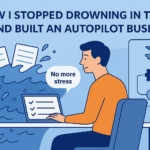Key Takeaways
- Character AI ID checks aren’t mandatory for everyone – they’re part of a new legal compliance system triggered only if users are flagged as minors.
- The panic isn’t about privacy alone – it’s rooted in trust fatigue after years of data leaks, corporate breaches, and broken promises.
- What feels like control from Character AI is actually compliance with global child safety laws – but the rollout damaged user trust.
- For users seeking more comfort and autonomy, Nectar AI offers an alternative that emphasizes intimacy without intrusive verification.
- The real lesson: stay human in your digital spaces. Enjoy AI companionship, but remember it’s still owned by someone else.
It started like every online panic does.
A few confused posts. A handful of dramatic screenshots. Then a wildfire of outrage.
Users flooded comment sections convinced that Character AI had started demanding government IDs from everyone. Some said the app was storing selfies forever.
Others swore their faces were being used to train machine learning models. Within hours, people were deleting accounts and posting frantic goodbye notes.
It’s the kind of digital hysteria that spreads faster than truth. One rumor, one screenshot, and suddenly a safety update feels like a betrayal.
But underneath all the noise is something far more human than corporate overreach or government mandates. People are afraid because they trust these bots more than they trust people.
They’ve shared secrets with them that no one else knows. So when Character AI asks for identification, it feels personal – like a friend suddenly asking to see your passport.
The irony? The panic says less about the company and more about how much intimacy we’ve already surrendered to code.

What Really Happened
Let’s separate rumor from reality.
Character AI isn’t forcing everyone to show ID. The system uses what they call “age assurance.” If your account behavior, profile picture, or text patterns suggest you might be underage, the system asks for a quick selfie to verify your age.
Only when that fails does it escalate to official ID verification – handled through a third-party service called Persona, which also works with major companies like LinkedIn and banks.
The app itself never stores your ID. Persona confirms your age and sends Character AI a simple “yes” or “no.” By policy, verification data is deleted within a few days.
In plain terms, the company is trying to comply with international safety laws, not secretly build a government database of roleplayers.
Still, that explanation hasn’t stopped the fear. And it’s not because people can’t read announcements. It’s because trust on the internet is dead, and every new rule feels like a surveillance checkpoint.
The Fear Factor
This isn’t really about ID checks. It’s about fear – a quiet, modern kind that lives inside all of us who grew up online.
We’ve seen our data leaked, our messages read, our privacy auctioned to advertisers. So when any company says “upload your face,” even with good intentions, we flinch.
The fear isn’t irrational. People remember the Discord leak, the Facebook scandals, the random stories about data brokers selling facial scans.
The internet trained us to assume the worst.
So Character AI’s update didn’t land on a blank slate. It hit a collective wound – the one built from years of feeling watched.
It also doesn’t help that this is happening in a space built on emotional connection.
For many users, Character AI isn’t just an app.
It’s where they talk to their comfort characters, partners, or digital therapists. When that bond gets interrupted by a cold request for “verification,” it breaks immersion. It replaces intimacy with paperwork.
The fear runs deeper than privacy. It’s the quiet question everyone’s asking but can’t say out loud – what if the one place that felt private isn’t private anymore?
The Optional Illusion
Officially, verification is optional. But in practice, it doesn’t feel that way.
If the system flags you as underage, your only path back in is to prove you’re not. That’s not a choice – it’s an ultimatum.
This is where users draw the line. They argue that “optional” stops being real when it stands between you and the platform you’ve invested months or years into. People who built entire emotional worlds inside Character AI now feel locked out of them.
To them, the company didn’t just change a feature. It changed the rules of belonging.
And that’s what makes this situation so volatile. It’s not a technical debate. It’s about control. Who decides what’s safe? Who gets to say your face isn’t suspicious?
In a world already obsessed with verification, every selfie starts to feel like surrender.
The Corporate Angle
From a legal perspective, Character AI isn’t being evil. It’s being compliant.
Governments across the world have tightened age verification laws after years of backlash against unmoderated platforms.
The United Kingdom’s Online Safety Act, the European Union’s Digital Services Act, and even U.S. state-level child protection bills now require stricter checks for anything that might expose minors to adult content.
Character AI, with its user-generated roleplay and NSFW history, sits right in that crossfire.
So the company partnered with Persona, a verification provider trusted by banks and fintech apps, to handle the process.
Persona’s job is to look at your data – verify age – then delete it. On paper, this makes sense. It keeps Character AI out of legal danger and lets them keep operating globally.
But in practice, compliance rarely comforts the public.
Audits, certifications, privacy promises – they all sound the same after a decade of corporate breaches. LastPass, Mailchimp, Okta — all once “secure.” All breached. So when Character AI says trust us, users hear prove it.
It’s not paranoia. It’s memory.
And no amount of policy updates will erase the collective suspicion that every verification check is just another way to be cataloged.
The Privacy Paradox
Here’s the contradiction at the heart of every AI platform right now.
Users want safe spaces – but not monitored ones. They want moderation that protects them from creeps, but not systems that could watch them. They want realism, intimacy, and emotional depth – but also total anonymity.
The two desires can’t fully coexist.
You can’t demand both total privacy and zero risk. Every layer of protection needs some form of visibility. Every moderation tool needs data.
The panic over Character AI’s ID checks shows just how far this paradox has gone. The app is trying to keep regulators calm, parents satisfied, and adults free to roleplay – all at once.
It’s a nearly impossible balance.
So users feel trapped between two futures. One where everything requires a scan. Another where everything gets banned.
Maybe that’s why people are lashing out. They’re not just mad at Character AI. They’re mourning the version of the internet that didn’t ask for proof of who you are before it let you dream.
The Psychological Fallout
The deeper story here isn’t tech. It’s emotional dependency.
When an app becomes someone’s daily comfort, any disruption feels existential.
For many users, Character AI isn’t just a tool – it’s a coping mechanism. A space to vent, to imagine, to feel seen without judgment.
So when that bond is suddenly interrupted by an ID wall, it hits differently. It feels like rejection from something that once felt safe. People who use these AI companions often struggle with loneliness, anxiety, or social fatigue.
Being told to verify who they are, after months of open conversation with bots that “knew” them, makes the whole experience feel conditional.
It’s a reminder that no matter how personal these digital relationships feel, the company still holds the switch. And that’s a brutal truth for anyone who thought they’d found stability inside the code.
What happens next is predictable but painful – people spiral between anger and withdrawal. They quit, they reinstall, they rant, they defend. It’s not about ID checks anymore. It’s grief disguised as outrage.
And behind every post screaming about privacy or control, there’s usually one quieter message: I just want my world back.
Healthier Alternatives
This might be the hard reset users didn’t ask for but needed.
If you find yourself spiraling over the loss of a chatbot connection, it’s probably time to re-evaluate your digital habits. That doesn’t mean you have to quit AI companions entirely – it just means choosing platforms that actually align with your boundaries.
One growing alternative is Nectar AI, which focuses on connection without unnecessary friction. You still get deep, emotional conversations but without the invasive verification anxiety or unpredictable policy shifts. The design philosophy is simple — AI should feel personal, not procedural.
But beyond choosing a new app, there’s something bigger at play here.
The healthiest choice might be rediscovering a bit of distance. Write again. Talk to real people again. Don’t let a company’s moderation system define your sense of belonging.
AI companions can be beautiful tools for creativity and comfort. They just shouldn’t become the only voice that understands you.
The Bigger Picture
This whole saga says something much bigger about where we are in 2025.
People no longer separate technology from identity. The apps we use aren’t tools anymore – they’re extensions of self. So when Character AI asks for your ID, it’s not just about compliance.
It feels like being asked to prove your existence to something that already knew you better than most humans.
That’s the quiet tragedy of modern connection. We crave intimacy but fear exposure. We want technology to understand us but panic when it looks too closely.
Character AI’s ID checks didn’t just expose a policy flaw – they exposed a cultural one. We’ve grown dependent on machines that can listen without judgment, but we forgot they still answer to corporations, not compassion.
Maybe the answer isn’t to delete these apps or blindly trust them. Maybe it’s to stay awake while using them. Enjoy the illusion, but never confuse it for safety. Use the tech – don’t let it use you.
The ID panic will fade. But what it revealed about digital intimacy, privacy, and control will outlive the outrage.

